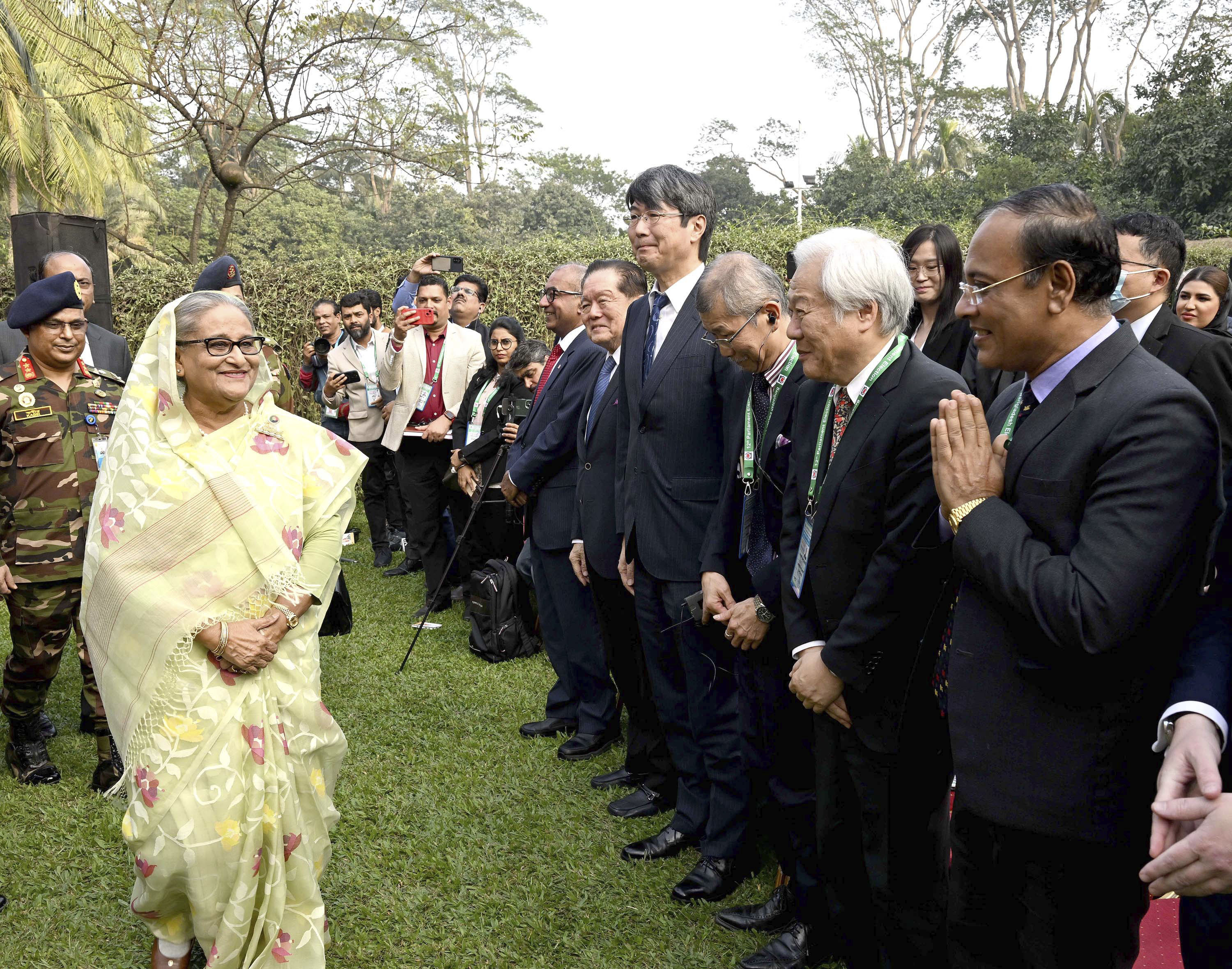
Dhaka, Bangladesh — Hours after Bangladesh’s ruling Awami League was declared the landslide winner in Sunday’s election, which the opposition had boycotted, Prime Minister Sheikh Hasina hosted a queue of foreign diplomats, each coming to congratulate her.
The envoys of India, the Philippines, Singapore and other nations were there. Also visiting the prime minister were the ambassadors of Russia and China.
In Washington and London, meanwhile, the governments of the United Kingdom and the United States criticised the election as illegitimate. US State Department spokesperson Matthew Miller, in a statement, said that Washington believed the voting process was “not free and fair, and we regret that not all parties participated”. The UK criticised what it described as “acts of intimidation and violence” during the election.
Bangladesh’s response? “We’re not bothered,” foreign minister AK Abdul Momen said on Tuesday, when asked about the comments from the US and the UK.
That contrast between the West’s condemnation and the welcoming embrace of China and Russia is a window into potentially dramatic foreign policy consequences of Hasina’s return to power, say political analysts and economists. For the West, Hasina’s increasing ties with China and Russia, on top of Bangladesh’s rejection of its concerns over the election, could poison ties with Dhaka. But that in turn could end up pushing Dhaka even closer to Beijing and Moscow.
Dhaka-based political analyst Zahed Ur Rahman said he believes there is a likelihood of the US imposing visa restrictions and targeted sanctions against individuals who played key roles in the conduct of the election, which independent monitors have criticised for violence and intimidation against the ruling party’s political opponents. In August, the US had declared a first set of constraints on visas for some Bangladeshi officials.
But doing so, he said, could jeopardise US plans to rope Bangladesh into its strategy to balance the rise of China, especially with the deepening economic ties between Dhaka and Beijing. China has been Bangladesh’s top trading partner for more than a decade – a period during which Hasina has ruled uninterrupted.
“The new government will find it very challenging to work deeply with the US’s Indo-Pacific strategy that actually is a policy to contain China,” Rahman said.
Russia, meanwhile, has supported Bangladesh in opening the country’s first nuclear power plant. Dhaka received the first supply of uranium from Moscow in October. Russia is also a major supplier of three essential commodities – fuel, food grains and fertilisers – to Bangladesh at relatively affordable prices. “If the West led by the US goes very coercive with the new government, then Bangladesh ties with Russia will grow fast,” Rahman said.
That geopolitical calculus poses challenges for the West, said experts. It will be difficult for the US and its allies to go about business as usual with Bangladesh. But it is unclear how far they might go in trying to hurt Hasina’s government.
The West “will face a serious dilemma,” said Ali Riaz, professor and political scientist at Illinois State University.
Yet, Bangladesh, too, faces tough choices.
The country’s apparel industry, which employs four million workers, clocked exports worth $47bn in 2023 – 84 percent of the country’s total exports. The US is the single largest export destination for Bangladeshi garments.
However, recently, eight US Congress members wrote to the American Apparel and Footwear Association to pressure Dhaka on fair wages and labour rights in Bangladesh. Several workers have been killed in clashes with security forces during street protests seeking a raise in minimum wages. Bangladesh’s embassy in Washington has cautioned its government in Dhaka that the country’s ready-made garments sector could become a target of Western measures.
It’s a concern that economist Mustafizur Rahman shares. “If the US and the EU take any punitive measure in the form of additional tariff or sanctions, then there will of course be an adverse impact,” Rahman, a distinguished fellow at the Dhaka-based Centre for Policy Dialogue, told Al Jazeera. Bangladesh’s dependence on garment exports makes it particularly vulnerable to any such targeting, he said.
And any resulting economic turmoil would only push Bangladesh even further towards China. “It is not because the Western countries may either put more pressure or recalibrate its policy, but because the ongoing economic crisis will require deep-pocket support and there will be increasing ideological affinity between these two countries’ leadership,” said Riaz at Illinois State University.
In Dhaka, Awami League spokesperson Mahbubul Alam Hanif insisted that Sunday’s election would not affect the government’s relations with the West.
“We have development partners and they often give suggestions, including to strengthen democracy, but I don’t think Sunday’s election affects US-Bangladesh ties,” Hanif said.
How the re-elected Awami League government handles politics post-election could also determine the pressure on the US and its allies to act against Bangladesh.
Since mid-August last year, more than 27,200 members of the main opposition Bangladesh Nationalist Party have been imprisoned and at least 104,000 have been sued on different charges, according to BNP figures. At least 27 BNP men also have been killed in political violence since October.
With a supermajority in parliament – the Awami League won 222 of 300 seats, and many of the more than 60 independents who won are former members of the ruling party who were allegedly asked to contest to give a veneer of a fight – opposition leaders expect the government to target them even more.
BNP leader Kayser Kamal said the “illegitimate” government would intensify its crackdown on opponents to divert attention from the “sham” election.
Riaz agreed. “Bangladesh is becoming a de facto one-party state,” he said. The government, he said, would “adopt more repressive measures, try to decimate any kind of opposition through legal and extra-legal measures”.







